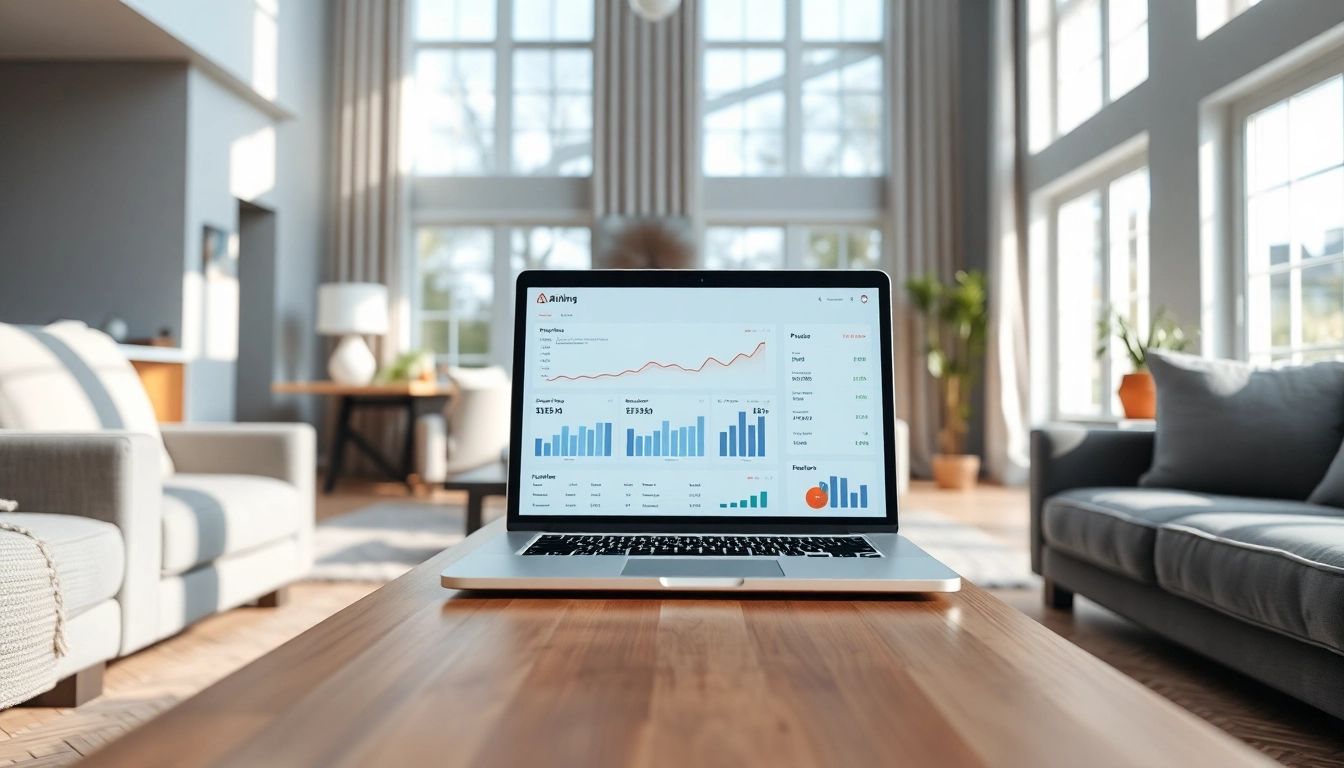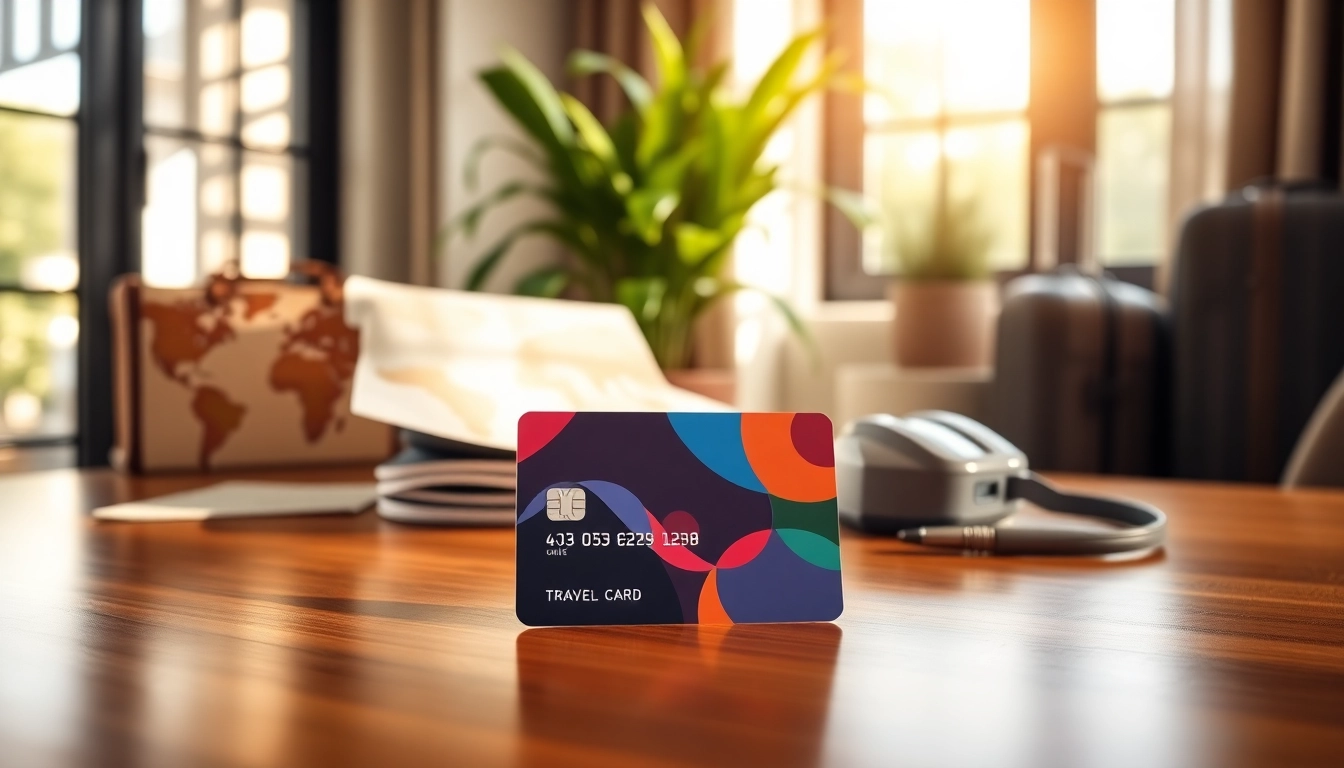Understanding Smart Airbnb Pricing
What is Smart Airbnb Pricing?
Smart Airbnb pricing is an advanced pricing method employed by hosts that combines data analysis and market insights to determine the optimal rental prices for their properties. Unlike static pricing strategies, smart pricing adapts to market changes in real-time, allowing hosts to maximize occupancy rates and revenue. This method leverages predictive analytics, local market trends, and other vital variables to provide a dynamic pricing strategy that not only attracts potential renters but also responds efficiently to supply and demand fluctuations.
Benefits of Smart Pricing for Hosts
The utilization of smart Airbnb pricing offers numerous advantages for property hosts. Firstly, it increases revenue by optimizing nightly rates according to market conditions, ensuring that hosts are not undercharging during peak periods or overcharging during slow seasons. Hosts can see significant financial benefits as smart pricing tools can enhance booking rates by adjusting prices based on real-time data, such as occupancy levels, local events, and competitor pricing.
Another notable benefit is that it saves time and effort. Instead of manually adjusting rental prices and constantly monitoring market conditions, hosts can leverage automated solutions that integrate efficient algorithms. This allows for a more hands-off approach, enabling hosts to focus on enhancing guest experiences and managing their properties. Additionally, by implementing smart Airbnb pricing, hosts can improve their property’s visibility on platforms, which often rewards competitive pricing with higher rankings in search results.
Common Challenges in Implementing Smart Pricing
Despite its advantages, implementing smart pricing can present certain challenges. One major hurdle is the initial learning curve associated with understanding data analytics tools and pricing algorithms. Many hosts, particularly those newer to the platform, may struggle to interpret complex data effectively. This can lead to mispricing and, ultimately, lost revenue opportunities.
Furthermore, market volatility can create uncertainty. Price fluctuations based on local events or sudden changes in demand can be difficult for hosts to manage. Misestimating demand can result in potential guests choosing competitors, particularly if prices are not aligned with what consumers are willing to pay during certain times. Additionally, dependence on technology means that hosts may face unforeseen issues, such as software malfunctions or data inaccuracies that could impact pricing strategies.
Key Factors Influencing Smart Airbnb Pricing
Market Trends and Demand Analysis
Understanding the local market trends is crucial for effective smart Airbnb pricing. Hosts need to conduct thorough demand analysis, assessing varying factors that can influence booking rates. These factors include macroeconomic indicators affecting travel, the popularity of the location, and competition within the area. For instance, a rise in tourism can lead to increased demand, allowing hosts to increase prices. Conversely, economic downturns or shifts away from a particular destination can lead to decreased demand, necessitating a pricing recalibration.
Moreover, tools and platforms that analyze historical data can help identify patterns that signal when to adjust pricing, enabling hosts to capitalize on demand spikes efficiently. By staying informed about local events, festivals, and seasonal trends, hosts can proactively modify their prices, ensuring competitive rates that align with consumer expectations.
Seasonality and Local Events Impact
Seasonality significantly impacts pricing strategies in the hospitality industry. Understanding peak seasons can lead to higher occupancy and profitability. For example, tourist destinations often see increased rental inquiries during holidays, summer vacations, or significant local events like sporting competitions or cultural festivals. During these times, implementing smart pricing can strategically elevate rates to match demand, optimizing income accordingly.
Moreover, local events can create unexpected surges in demand. Hosts who are aware of upcoming concerts, conventions, or other events can adjust their pricing to reflect these transient demand changes. Tools that offer real-time analytics can inform hosts of such events well in advance, enabling proactive strategies that maximize advantage during peak attendance periods.
Comparative Pricing Strategies
Adopting comparative pricing strategies is essential in a competitive market. Hosts should frequently evaluate their competitors’ pricing structures to ensure their own rates are optimized. By analyzing direct competitors, hosts can identify pricing benchmarks and ascertain whether they are undervalued or overpriced in the market. Such strategies could involve comparative analysis of similar properties in terms of location, amenities, and guest reviews.
Additionally, utilizing comparative pricing can also help identify market gaps. For instance, if most similar properties are priced higher, this might indicate a potential opportunity for a host to increase their pricing or vice versa, fostering better occupancy rates. Comprehensive tools that provide comparative data can offer insights that lead to more informed decision-making surrounding pricing adjustments.
Effective Tools and Technologies for Smart Airbnb Pricing
Analyzing Pricing Tools and Algorithms
A range of pricing tools and algorithms exist to assist hosts in implementing smart Airbnb pricing effectively. These tools analyze variables such as occupancy rates, seasonal trends, and local competitor prices. By utilizing algorithms that incorporate historical data and predictive analytics, hosts can generate optimal pricing strategies for any period.
Additionally, some platforms offer features such as price recommendations that adapt to market shifts, ensuring that hosts remain competitive. When selecting a pricing tool, it’s essential to consider factors such as ease of use, integration capabilities with existing property management systems, and the level of support offered for interpreting analytics.
Integrating Data Analytics for Better Insights
Integrating data analytics into the pricing strategy provides valuable insights that enhance decision-making. With data-driven insights, hosts can monitor their performance, understand pricing effectiveness, and determine which factors successfully drive bookings. Analytics tools provide dashboards that visualize data trends, helping hosts make timely adjustments and optimizing pricing based on concrete evidence rather than intuition alone.
Moreover, understanding customer behavior is enhanced through analytics. By evaluating insights into what time of year guests book, how far in advance they plan, and what amenities attract higher interest, hosts can refine their listing and pricing to improve overall bookings and customer satisfaction.
Choosing the Right Platform for Smart Pricing
Selecting the appropriate platform for implementing smart Airbnb pricing is critical to streamline processes and improve outcomes. Some platforms offer extensive data analytics features, while others may focus on user-friendly interfaces that facilitate easy navigation. It’s advisable for hosts to consider their specific needs, such as whether they require more comprehensive market insights or a straightforward pricing tool.
Also, examining user reviews and testimonials can provide insights regarding others’ experiences, enabling informed decisions. The right platform should not only align with pricing goals but also provide adequate support and resources that help hosts maximize the potential of their pricing strategies.
Best Practices for Implementing Smart Airbnb Pricing
Steps to Set Up Smart Pricing
To effectively set up smart pricing, hosts can follow several best practices. Initially, it is vital to conduct a comprehensive market analysis, assessing local competitor prices, peak seasons, and any upcoming events that may influence demand. This foundational understanding creates a benchmark for establishing pricing parameters.
Next, integrating a smart pricing tool that aligns with their needs is crucial. Implement the tool and ensure it is set up to pull relevant data, taking time to familiarize oneself with its features and functionalities to fully benefit from the insights provided. Subsequently, establish flexible pricing strategies that allow for adjustments based on fluctuating market conditions.
Lastly, setting specific performance metrics is vital to gauge the effectiveness of smart pricing strategies. Regularly review performance data and adjust pricing as necessary to align with market trends and booking data. Over time, this proactive approach will lead to improved revenue and greater property visibility on rental platforms.
Monitoring Performance and Adjustments
Once smart pricing is implemented, continuous monitoring is essential for long-term success. Regularly analyzing key metrics, such as occupancy rates, average daily rates, and revenue per booking, can help hosts identify trends and patterns within their pricing strategies. This data can indicate whether adjustments are needed, ensuring that pricing is responsive to market conditions.
It is also beneficial to gather guest feedback as it provides insights into their booking decisions. Understand why prospective guests chose your property or what may have discouraged them from proceeding with a booking. This qualitative data, when combined with quantitative analytics, fosters a well-rounded understanding of the pricing impact, allowing for informed adjustments to future pricing strategies.
Case Studies of Successful Implementations
Real-life examples highlight the effectiveness of smart Airbnb pricing strategies. Hosts who implemented dynamic pricing tools reported increased occupancy rates, often attributing it to their ability to adjust pricing corresponding to real-time market conditions. For instance, a host in a coastal tourist area used seasonality analytics to elevate prices during summer months and local event weekends, leading to a 30% increase in gross revenue over comparable periods in prior years.
Another case involved a host utilizing competitive analysis tools to undercut local competitors slightly while offering superior amenities. This strategy not only led to a marked increase in bookings but also resulted in positive reviews, establishing a ripple effect that bolstered the property’s reputation. The case studies illustrate that a well-executed smart pricing strategy tailored to local market trends can yield substantial financial rewards.
Measuring the Success of Smart Airbnb Pricing
Key Metrics to Track
To effectively measure the success of smart Airbnb pricing, hosts should monitor key performance indicators (KPIs). Essential metrics include occupancy rates, which reflect the percentage of nights booked relative to availability; average daily rate (ADR), informing hosts of the revenue generated per booked night; and revenue per available rental (RevPAR), highlighting overall property performance regardless of occupancy.
These metrics, once analyzed collectively, offer a comprehensive understanding of how pricing strategies perform and identify areas for further improvement.
Benchmarking Against Competitors
Benchmarking against competitors is a vital component of measuring smart pricing success. By comparing own performance metrics alongside those of similar properties, hosts can understand their market position and identify pricing strategies that could enhance competitiveness. This involves examining local competitor rates, occupancy levels, and ratings to ascertain where adjustments can lead to improved performance.
Moreover, adapting pricing frameworks in response to competitor changes can create an advantage. For example, if a local competitor increases their prices after receiving a high review score, hosts can evaluate whether to adjust their pricing accordingly to remain competitive.
Future Trends in Smart Airbnb Pricing
As technology evolves and the rental landscape continues changing, the future of smart Airbnb pricing will likely feature innovative advancements and more refined analytics tools. Increased reliance on artificial intelligence (AI) and machine learning could enable even greater predictive capabilities, allowing for adaptive strategies that respond instantaneously to changes in market dynamics.
Additionally, there may be a rise in customer-centric pricing strategies that consider guest preferences and personalization in pricing structures. Future trends could involve integrating guest behavior data into pricing algorithms, enhancing profitability through more tailored rental experiences.
In conclusion, as the rental landscape becomes increasingly competitive, the need for effective pricing strategies will only intensify. Adopting smart Airbnb pricing principles will undoubtedly benefit hosts, paving the way to maximize revenue potential while ensuring guest satisfaction.














Leave a Reply